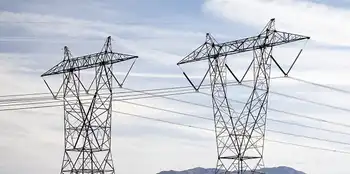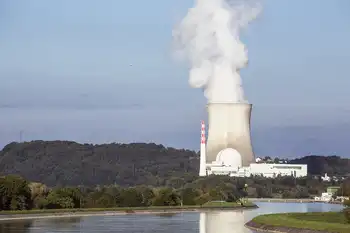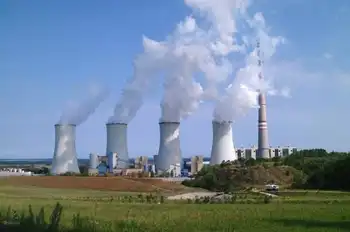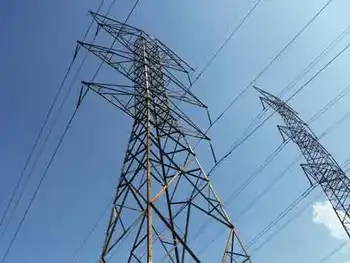Illinois coal plants sued over dirty air
By Chicago Tribune
Arc Flash Training CSA Z462 - Electrical Safety Essentials
Our customized live online or in‑person group training can be delivered to your staff at your location.

- Live Online
- 6 hours Instructor-led
- Group Training Available
In a 75-page lawsuit filed in U.S. District Court in Chicago, the federal and state governments accused Midwest Generation of extending the life of its aging power plants without installing pollution controls required under the federal Clean Air Act.
The agency also alleges the company releases too much soot, microscopic air pollution that can trigger asthma attacks and cause lung disease, heart problems and early deaths.
Coal plants are major sources of soot and other pollutants that create smog, which lingers over the Chicago area during the summer. The lawsuit cites the company's two plants in Chicago (in Pilsen and Little Village), two in Will County (in Joliet and Romeoville), one in Waukegan and one outside Peoria.
"The excess illegal emissions resulting from the violations alleged in the complaint are sufficient to cause serious harm to human health and the environment," said John C. Cruden, acting assistant attorney general for the U.S. Justice Department's Environment and Natural Resources Division.
Midwest Generation, a subsidiary of California-based Edison International, bought the plants in 1999 from ComEd, which was not cited in the complaint.
Targeted repeatedly by neighborhood activists and environmental groups, the coal plants have avoided anti-pollution regulations for years, in part because federal regulators assumed decades ago that the aging generators would have been scuttled by now.
"I am very concerned about the negative health effects that these aging plants have on the people who live in the communities where the Midwest Gen facilities are located," Madigan said.
Midwest Generation is the latest power company to face tougher scrutiny from the EPA. The agency gradually realized that many older coal plants across the nation had been modified and expanded so many times that they should be considered new plants and forced to comply with modern pollution standards.
The Fisk plant in Pilsen began operating in 1903. The other plants cited in the lawsuit date back to the 1940s, 1950s and 1960s.
The federal EPA and the U.S. Department of Justice already have brokered settlements with several other companies that agreed to spend millions on new pollution controls. A coalition of environmental groups last month threatened to go to court to force the EPA to take similar action against Midwest Generation.
Under a deal with the Illinois EPA, company officials already have agreed to clean up or close the six coal plants by 2018. The federal lawsuit could force the company to upgrade or shutter its plants faster.
In a statement, the company called its agreement with the state "as tough or tougher than settlements other companies have reached with the federal government on the claims set out in this suit." It said new equipment upgrades will cut smog-forming nitrogen oxide emissions by 80 percent by 2012; toxic mercury emissions by 90 percent by 2015; and emissions of sulfur dioxide, an ingredient in smog and acid rain, by 84 percent by 2018.
"While we remain open to exploring settlement of this complaint, we have a progressive record of environmental performance and leadership that we will be prepared to vigorously present and defend," the company's statement said.
Critics have grumbled that the state deal gave Midwest Generation too long to clean up its plants. In 2005, Madigan documented thousands of pollution violations at the power plants, but the Illinois EPA agreed with company officials who argued that occasional bursts of soot were normal and nothing to worry about.
The Illinois EPA is not a party to the lawsuit.
Federal EPA officials in Chicago have been investigating the power plants for years. The lawsuit involves a provision of the Clean Air Act known as New Source Review, which requires upgraded pollution controls when power plants undergo major modifications.
The Bush administration tried several times to gut that section of the law. By contrast, President Barack Obama promised during his campaign last fall to press forward with additional complaints if warranted.











